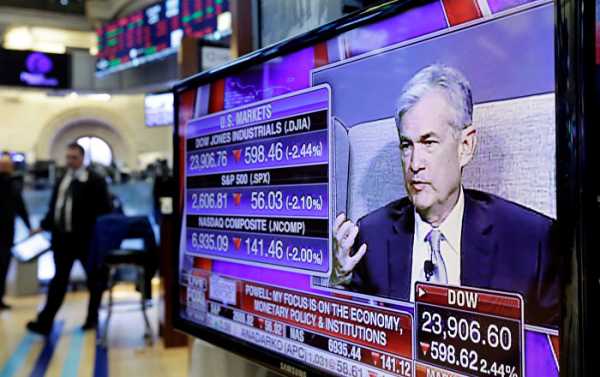
US central bankers, cabinet officials, and investors are all expressing confidence that the ongoing economic acceleration is poised to last due to the solid labour market, higher consumer sentiment, and a resurgence in domestic industries.
Kristian Rouz — A decade of sluggish economic recovery in the US is likely over, investors say, as GDP growth is gaining momentum, the jobless rate is falling, and bond yields are on the rise. With unemployment having hit yet another multi-decade low, wage inflation is set to increase, supporting consumer confidence as well, while also fuelling expectations of higher private-sector profits across the board.
Slightly more than 10 years since the meltdown at Lehman Brothers signalled the onset of a global economic crisis, the American economy appears to be back on track again. According to Federal Reserve Chairman Jerome Powell, a stronger labour market coupled with inflation near the Fed’s 2-percent target suggests a stronger GDP growth in the foreseeable future.
However, Powell also said the current business cycle has extended beyond its normal 10-year average lifespan, meaning the uneven and shambolic, yet buoyant, GDP expansion in the era of Trumpian economics is entering unchartered waters, the unexpected galore.
“Business cycles don’t last forever, but there is really no reason to think that this cycle can’t continue for quite some time,” Powell said.
This comes as the US Department of Labor said Friday jobless rate decreased to 3.7 percent in September, the lowest since December 1969, whilst job creation has cooled to 134,000 new entries that month.
Department officials said job growth was the most prominent in the services sector, healthcare, and construction.
This latest set of data also suggests average wages are set to increase, as employers are struggling to fill the vacancies amidst the solid labour market.
“Wage inflation is creeping higher,” Russell Price of Troy, Mich.-based Ameriprise Financial Services Inc said.
The Labor Department said average hourly wages rose 2.8 percent in September, compared to 2.9 percent the previous month. The department’s most recent report also found that an additional 87,000 jobs were created in July and August, on top of the first reported — but some 18,000 jobs were lost after hurricane Florence battered the East Coast weeks ago.
Officials stated they have yet to calculate the precise impact of the hurricane on employment in the affected areas and nationwide.
Meanwhile, Amazon increased its minimum wage to $15/hr, likely setting a precedent for other companies. Amazon executives said the decision was motivated by the increase in long-term bond yields, which are seen as benefitting the company, and ensuring longer-term sustainability of the broader economy.
“When productivity growth is faster, that is your opportunity to share some of your extra output with your workers. That’s what gets wages higher,” Vincent Reinhart, chief economist at investment management firm Standish and former Fed official, said.
Additionally, Amazon’s business model is based off personal and household consumption — and higher wages for its own employees are expected to produce higher returns, not least due to the increased prices.
Some companies, including Amazon, have insinuated higher prices are stemming from the trade war with China — but Fed officials refuted such claims, with Chair Powell saying the effects of the trade tensions with China have had minimum impact on the American economy. Officials also suggested stockpiles of previously imported products are not yet depleted.
That being said, economists are confident that a solid labour market will propel economic growth even higher. Currently, the US economy is estimated as growing at above 3 percent per year, and the majority of experts agree that the current pace of expansion is sustainable.
“There’s no question the job market in the United States is possibly at its best in a generation. There’s no question or debate about that. The jobs report has become an inflation report,” Ameriprise’s Price said.
Economists also say many risks to the economy still persist, including the overvalued property and stock markets, high household debt, and uneven growth patterns. However, experts say, such risks can be addressed with more conventional policy tools.
And the Fed is considering ways to lock-in the nascent era of economic prosperity while tacking the risks appropriately. Chair Powell said ‘basically everything’ about the economy keeps him awake at night.
“Nobody wants a central banker who sleeps well. What good is that?” he emphasized.
Sourse: sputniknews.com






